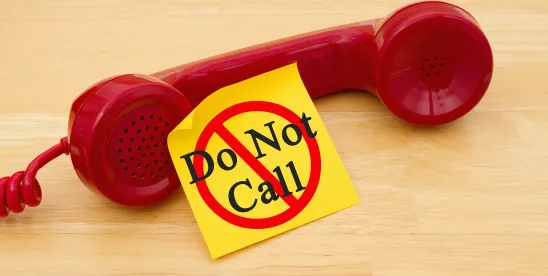Every once in a while I see a case where a Plaintiff invites calls on a recorded call and then sues for the calls.
Its weird. But it happens often enough that it merits discussion.
So the law requires written prior express invitation or permission if a call is to be made to a number on the DNC list for marketing purposes.
An exception to this exists if a consumer makes an “inquiry” into a callers products or services– then the caller can call for 90 days without violating the DNC rules, even if no purchase is made.
Many times, however, a marketer will not properly identify themselves as the rules require. Would-be litigators will stay on the line in these circumstances and feign interest in order to identify the caller.
Of course they are not actually going to identify the caller– some call center BPO or lead generator– but they will get transferred to a lead buyer (again, not the caller) who will identify themselves.
This will invariably lead to a suit against the lead buyer, which is a real problem for the industry.
But the phenomenon of inviting further calls is the issue of discussion today.
Without question if the original calls were made without consent they can be sued for, but what happens when the litigator gets on the line and expresses interest in the products even though the original call was illegal?
Well, as the case in Clemens v. Consumer Solution Center, 2025 WL 2427685 (E.D.Va. Aug. 22 2025) the Plaintff can sue for the original call but NOT for subsequent calls after the inquiry.
Here’s the meat of the analysis:
After Plaintiff “feigned interest” in the August 30 phone call made by “Jason,” “Jason” transferred Plaintiff to Defendant Estrada. Dkt. 19 ¶¶ 38, 39. Defendant Estrada explained over the phone various debt reduction services offered by the Consumer Solution Center, including the involvement of CounselorChen, P.C., a Virginia law firm, and Plaintiff continued to express interest in the services. Id. Based on these allegations, this Court finds that because Plaintiff “inquir[ed]” about Consumer Solution Centers “products or services,” id., Plaintiff entered into an established business relationship with Consumer Solution Center during the August 30, 2019 call. See Charvat v. Southard Corp., 2019 WL 13128407, at *5 (S.D. Ohio Sept. 30, 2019) (“Plaintiff moved from inquiries geared towards discovering [defendant’s] identity to a seeming legitimate question about what was being marketed. This was sufficient to create an EBR ….”); Morris v. Copart, 2016 WL 6608874, at *9 (E.D. Tex. Nov. 9, 2016) (stating that “the [p]laintiff’s false affirmation that he had a vehicle to donate established a business relationship, excusing subsequent calls made in furtherance of that business relationship and for the stated purpose of that relationship—to effectuate [the p]laintiff’s donation of a car”). This relationship was only terminated when the Plaintiff made a do-not-call request during a September 12, 2019 phone call. Thus, the August 30 and September 12 calls, and all calls and texts made in between that time frame, were placed during the course of the established business relationship between Plaintiff, Estrada, and the Consumer Solution Center, and thus were not telephone solicitations within the meaning of the TCPA. Accordingly, the Court overrules Plaintiff’s Objection on this basis.
Get it?
A feigned inquiry is still an inquiry.
So there you go.




 />i
/>i
